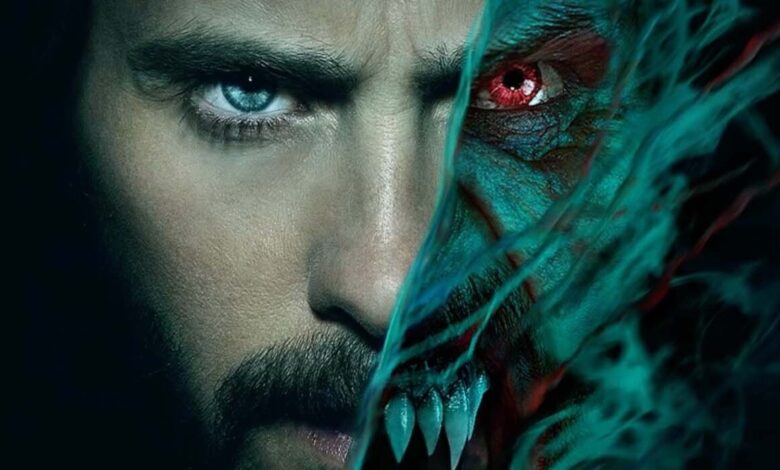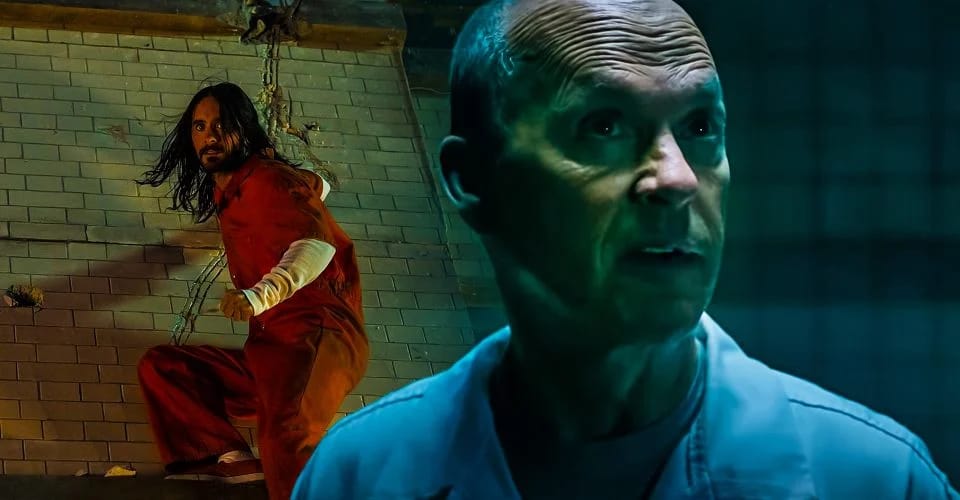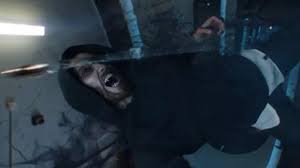Morbius (2022): “I am Venom… Just kidding. Dr. Michael Morbius, at your service.”

The Antihero Nobody Saw Coming
When Morbius sank its fangs into cinema screens in 2022, the world wasn’t ready — not for Jared Leto’s haunting portrayal of Dr. Michael Morbius, nor for the storm of fascination and controversy that followed. Marketed as part of Sony’s Spider-Man Universe, this film promised a dark, visceral journey into the heart of a man battling both a deadly disease and an uncontrollable thirst for blood.
But Morbius wasn’t just about vampire powers or Marvel cameos. It was about the terrifying, seductive line between saving lives… and taking them.

“I Am Venom… Just Kidding.” — The Joke That Said Too Much
This single line — half a joke, half a threat — became a cultural spark. Delivered with chilling deadpan by Leto in a dark alley scene, it wasn’t just a throwaway gag. It captured Morbius‘ twisted soul: a man who wears his monstrous face with reluctant pride, caught between predator and protector.
The line blurred the universe’s boundaries and teased connections fans obsessed over. Was it mockery? An Easter egg? Or the cry of a man losing grip on who — or what — he truly is?
A Story Drenched in Darkness and Desire
Dr. Michael Morbius, genius scientist turned living vampire, wasn’t searching for power. He was desperate to cure himself… and his best friend. But science, like fate, had a brutal sense of irony. His cure became his curse. The film’s shadowy corridors, echoing heartbeats, and violent transformations gave Morbius a gothic undertone that screamed for empathy — and horror.
Behind the special effects and action sequences lurked the film’s real hook: the aching loneliness of a man feared by the world and hunted by his own demons.

Why Morbius Still Bites Deep
Critics may have sunk their teeth into Morbius for its flaws, but audiences couldn’t look away. Was it the magnetic pull of antiheroes? The forbidden allure of a cursed savior? Or that peculiar thrill of watching a film teeter on the edge of madness?
Morbius became a legend in its own right — not because it was perfect, but because it dared to walk the razor’s edge between blockbuster spectacle and cult oddity.
Morbius (2022) isn’t just a film you watch — it’s a film that stares back at you from the shadows, whispering, “I am Venom… just kidding.” But are you really sure it’s a joke?





